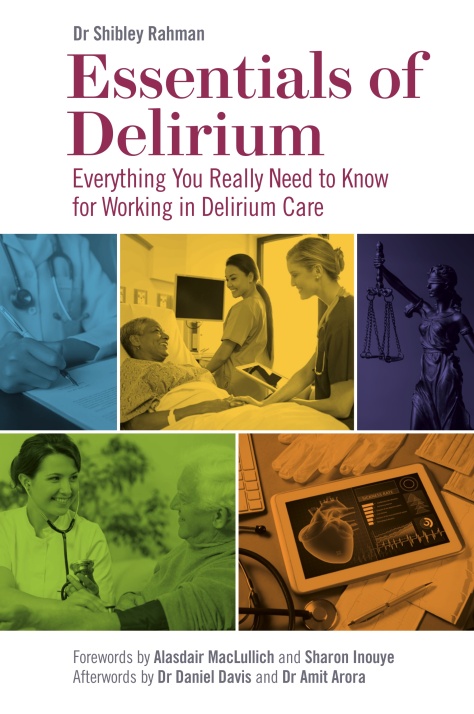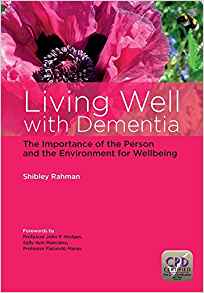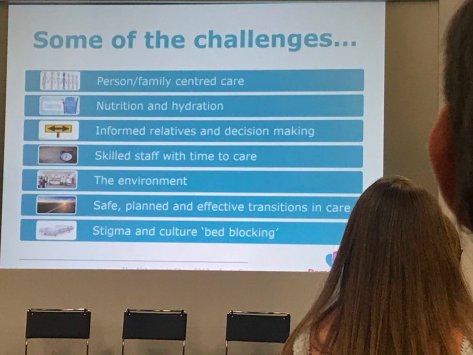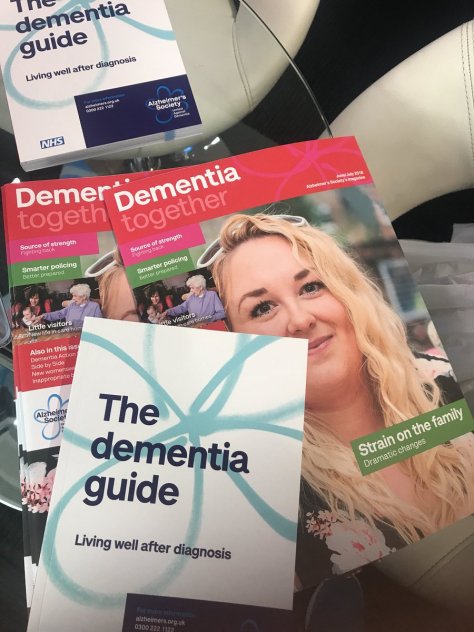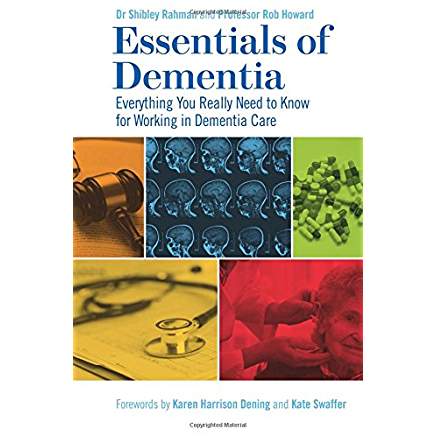This is emotionally difficult for me, as I have never told my story. It’s deeply personal to me, and my life pivots around the burnout I experienced within the NHS. It’s self-reflection for me, and I hope this never happens to you.
So here it goes.
The health and wellbeing of NHS staff affects patient safety (1). Burnout is a psychological syndrome due to the prolonged response to chronic interpersonal stressors at work. Key symptoms are overwhelming exhaustion, feelings of cynicism, and detachment from the job as well as a sense of ineffectiveness and lack of accomplishment (2). Definitions vary, however, and formal psychiatric classifications are lacking.
When I qualified in 2001, I didn’t really know what burnout was. I thought it was something which happened to other people. In 2002, with high hopes, I moved to London from Cambridge to do my ‘SHO jobs’, as they were called then. I looked forward to a change of pace from the rarefied world of academia. I was optimistic. I believed that I had the aptitude to master neurology one day.
I was prepared to go “beyond the call of duty” to look after my patients. I had moved to a new flat in a new city. But I had no idea that my new future could mean working ridiculous hours in prestigious teaching hospitals, where many seemed too busy to care about my emotional wellbeing.
Neurobiologically, the human brain needs rewards to learn (4), but almost no one gave me positive feedback. I had no friends in London. After my commute home, I’d feel exhausted and alone. These were supposed to be “the best years of my life”. I started having a drink on my own to unwind.
I was terrified of making a mistake at work. There was no “learn not blame” culture then, as such. I felt so insecure, with infrequent educational supervision but a constant feeling that I had to be perfect (5). The culture seemed almost to demand a ‘superhuman ability’, but you were not supposed only to admit fallibility, vulnerability, or fatiguability. I felt I had to exude confidence, chutzpah, and bravura (6).
In reality, I also had compassion fatigue (a reduced ability to feel sympathy and empathy, exhaustion, anger, and irritability) (7). I remember feeling totally exasperated by the number of patients I had to clerk, to the point of being obsessed by the clock. I may not have actually cared much about the emotionality of people’s life stories. I just wanted the work to be done as fast as possible. I would have preferred colleagues not to have noticed that I had burnout. I felt I had no-one to turn to, in case my underperformance would become ‘official’.
I am in no way surprised that depression and burnout are similar phenomenologically and biologically (8): at the time, my mood plummeted. After my fourth SHO job, I didn’t want to apply for another clinical job. I felt hostile, and excluded; I felt that I didn’t want to belong in the “medical club.”
Long after finishing my jobs, I started receiving letters from the GMC containing witness statements from colleagues about my poor health and performance. I was even identified in a statement to be a problem drinker, but I had never been advised to see occupational health at that particular time. I waited a few years for a GMC hearing, which eventually came quite publicly in 2006.
The GMC erased me from their register, absolutely correctly, but my drinking went through the roof, with no job, no social network, and no future. Even then I refused to admit I was an alcoholic. In 2007, I had a cardiac arrest and was in a coma for a month, and I became physically disabled.
When I left hospital, with my new physical disability, I finally admitted defeat, I luckily found a consultant psychiatrist, and I was fortunate to commence sobriety. I retrained to postgraduate level in law and business, and the GMC restored me to the register in 2014. I have been in continuous recovery ever since, and in the care of a GP and psychiatrist I have never looked back. Only this weekend, I was invited to ‘share’ in a Alcoholics Anonymous (AA) group I’ve been a member of. I feel honoured to do so, and I hope it goes ok. I have now not drunk alcohol ever in the last thirteen years.
Reflections
I didn’t actually recognise burnout in myself, so I don’t especially blame senior colleagues for not recognising it either. I realised only recently, after reading Clare Gerada’s columns in The BMJ. My ignorance still shocks me to this day, but it was a great relief that the diagnosis of burnout, in actual fact, explained the enormous, distressing, previously inexplicable symptoms I’d had all these years.
Doctors are somewhat expected to portray a healthy image. Combined with unease about adopting the role of patient, this can lead us to take responsibility for our own care even when we are patently unwell. This is extremely dangerous to patients at large, and might result from a genuine lack of insight.
Many doctors drink alcohol to cope with the chronic stress from working in demanding environments (9). Some doctors may not have registered with a GP, for fear that the GMC might learn of health problems such as alcoholism. Such maladaptive coping has significant implications for patient care, individual wellbeing, and the functioning of whole organisations.
The GMC’s Duties of a Doctor makes clear, however, that doctors should have their own GP (regulation 30, page 12). It also calls, rightly, for immediate protection of patient safety, which might require disclosure to the regulator about unsafe practice.
Burnout inevitably leads to dysfunctional teams. The GMC’s Duties of a Doctor includes a domain on working together. The 2019 GMC report on wellbeing, “Caring for doctors, caring for patients,” argued that central to doctors’ sense of “belonging” is the quality of team working, and the culture and leadership in their teams and organisations (11).
While reflecting on burnout, I have found – to my surprise – that I am not actually alone. The statistics are eye watering: one estimate indicates that one in 15 UK doctors may have alcohol or other drug dependency. (Sick Doctors Trust)
The US palliative care doctor Adam Hill has written in the New England Journal of Medicine about his own burnout, alcoholism, and recovery: “When mental health conditions come too close to us, we tend to look away — or to look with pity, exclusion, or shame.“ (10)
Suggestions
Happier doctors who support each other are safer doctors (12). In my case, rare supervisions with consultants never touched on my personal wellbeing. Educational supervisors could be trained to recognise symptoms of burnout. Senior doctors are under huge pressure, but still they must find time to care for junior doctors who are struggling, especially if they can find time to write to the GMC.
Professionals with burnout should not be “othered” as “problem doctors”, nor indeed “difficult doctors”. A lack of mentoring, coupled with a “blame culture,” often contributes to our difficulties.
I do not wish to absolve myself from the recognition that I contributed to my own problems, though. I deeply regret not recognising the symptoms of burnout in myself. If I had known I was in such trouble earlier, I might have been motivated to seek help. It might be a really good idea if, even with a packed medical curriculum, students learn how to seek help, take care of themselves and others, and be kind.
Approaching burnout has remarkable similarities to approaching problem drinking. The only person who can help you is yourself – but you can’t do it alone. Ask for help as soon as you can.
Things have changed: today the BMA, Health Education England, and the royal colleges are vigorously promoting wellbeing. And I really admire the GMC. It runs programmes on wellbeing and acknowledges head-on that professional behaviour and patient safety are closely linked.
But things are far from perfect. Ethnic minority doctors have a higher referral rate to the GMC (14). And radical reform is needed so that regulation complements the wellbeing of doctors working under pressure. This has indeed lobbied for by the BMA. Regulators such as the GMC and the CQC need better to consider the links between individual problems and dysfunctional or toxic organisations and culture.
I really appreciate you listening to me.
References
(1) Wilkinson E. UK NHS staff: stressed, exhausted, burnt out. The Lancet 2015;385:841–2.
(2) Maslach C, Leiter MP. Understanding the burnout experience: recent research and its implications for psychiatry. World Psychiatry. 2016 Jun;15(2):103-11.
(3) Browning L, Ryan CS, Greenberg MS, Rolniak S. Effects of cognitive adaptation on the expectation-burnout relationship among nurses. J Behav Med. 2006 Apr;29(2):139-50. Epub 2006 Mar 10.
(4) Morita K, Kawaguchi Y. A Dual Role Hypothesis of the Cortico-Basal-Ganglia Pathways: Opponency and Temporal Difference Through Dopamine and Adenosine. Front Neural Circuits. 2019 Jan 7;12:111.
(5) Robertson JJ, Long B. Suffering in Silence: Medical Error and its Impact on Health Care Providers. J Emerg Med. 2018 Apr;54(4):402-409. doi: 10.1016/j.jemermed.2017.12.001.
(6) Taylor TS, Raynard AL, Lingard L. Perseverance, faith and stoicism: a qualitative study of medical student perspectives on managing fatigue. Med Educ. 2019 Dec;53(12):1221-1229.
(7) Powell SK. Compassion Fatigue. Prof Case Manag. 2020 Mar/Apr;25(2):53-55.
(10) Bianchi R, Schonfeld IS, Laurent E. Burnout-depression overlap: a review. Clin Psychol Rev. 2015 Mar;36:28-41
(8) Montgomery A, Panagopoulou E, Kehoe I, Valkanos E. Connecting organisational culture and quality of care in the hospital: is job burnout the missing link? J Health Organ Manag. 2011;25(1):108-23.
(9) Hill AB. Breaking the Stigma – A Physician’s Perspective on Self-Care and Recovery. N Engl J Med. 2017 Mar 23;376(12):1103-1105.
(11) https://www.gmc-uk.org/-/media/documents/caring-for-doctors-caring-for-patients_pdf-80706341.pdf
(12) Rao S, Ferris TG, Hidrue MK, et al. Physician Burnout, Engagement and Career Satisfaction in a Large Academic Medical Practice. Clin Med Res. 2020;18(1):3-10.
(13) https://www.gmc-uk.org/about/how-we-work/corporate-strategy-plans-and-impact/supporting-a-profession-under-pressure/improving-support-for-doctors-to-raise-and-act-on-concerns/professional-behaviours-and-patient-safety-programme
(14) https://www.gmc-uk.org/about/what-we-do-and-why/data-and-research/research-and-insight-archive/fair-to-refer
Dr Shibley Rahman
@dr_shibley






